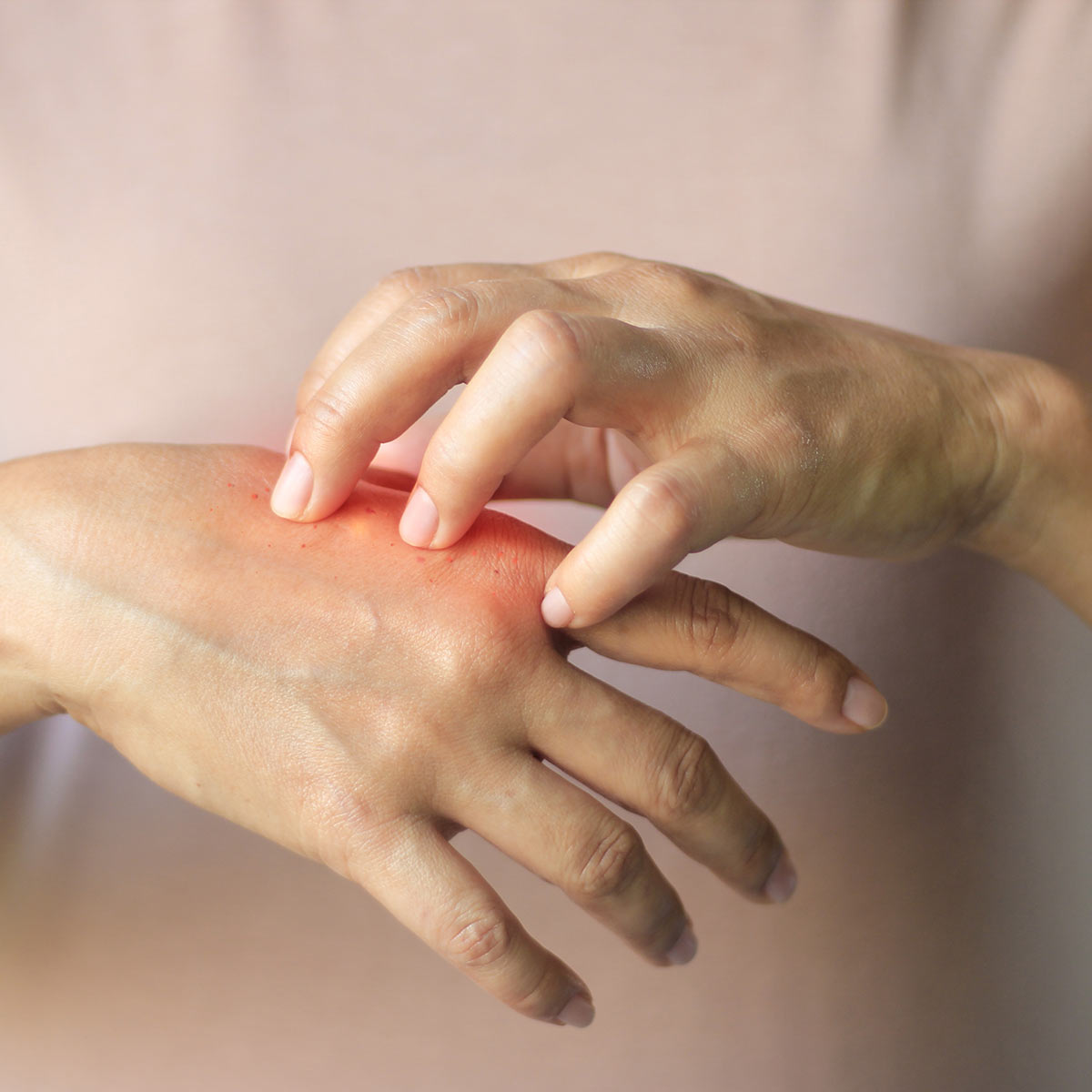
Do you have itchy, red skin? Perhaps you have unsightly patches on your hands, feet, or on the skin around your joints? Maybe it looks scaly and cracked. If these symptoms resonate, you could have eczema. Eczema, also known as atopic dermatitis, is a chronic, inflammatory skin condition characterized by dry, itchy skin and red rashes.
About the condition
Eczema is the most common allergic skin condition affecting roughly 10% of Americans, which can be caused by allergens like soaps, lotions, or certain foods, and can worsen in cold or dry air. Often seen in babies and young children, eczema can also affect adults.
What is eczema?
Eczema (also called atopic dermatitis) is a skin condition that can present on any part of the body, but most commonly shows up around the elbows, knees, wrists, and neck. It is often characterized by skin that is:
- Itchy
- Dry
- Bumpy
- Red
In severe cases, skin can become blistered. Excessive scratching can also cause skin to become thicker, which in turn makes it itch even more.
What causes eczema?
While the exact cause of eczema is still unknown, we know that there is a genetic predisposition to developing the condition, but it also can be triggered by an allergic reaction to irritants in soap, clothing, or other environmental factors like heat or dust.
When should I see a dermatologist about eczema?
If your eczema is impacting your quality of life (for example, itching is making it difficult to concentrate or sleep)—or if the condition hasn’t improved after 2-3 weeks or looks infected (bleeding, sore, or oozing), it is time to see a dermatologist.
Locations treating eczema
Fabulous physicians, caring nurses and very competent support staff. Dr. Srinivasan has treated all my family for years and answered questions and is just a wonderful physician.
Schedule an appointment
Take the first step today: book an appointment at the clinic that’s convenient for you. We look forward to creating a personalized treatment plan to relieve eczema.
Call 971-374-2150
